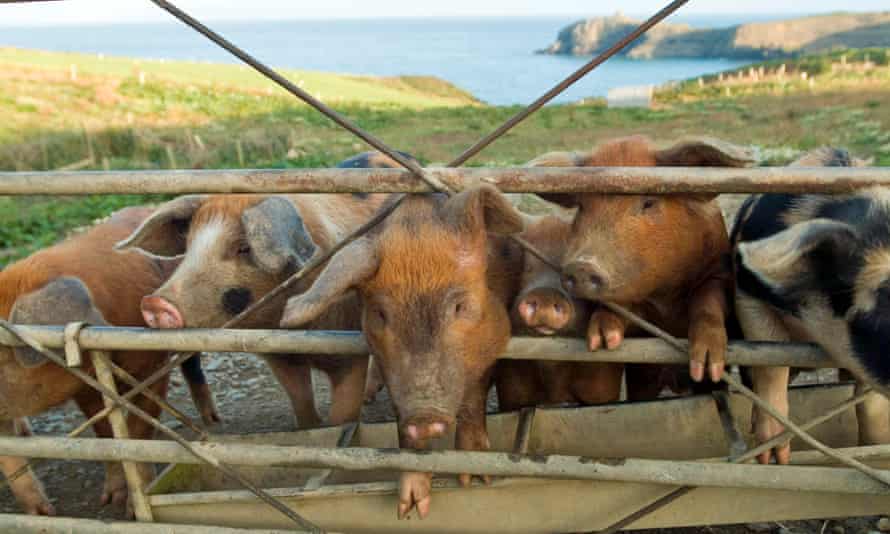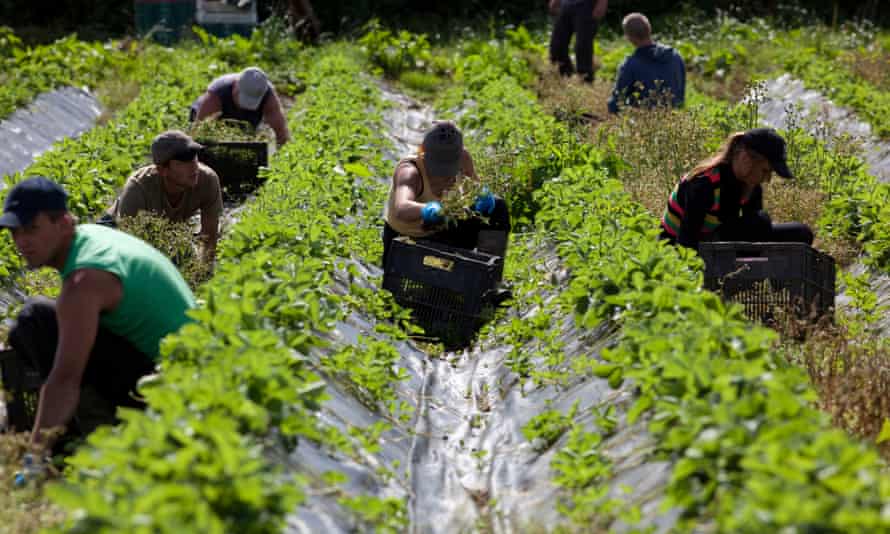There is an increasing shift towards ‘regenerative’ agriculture in the UK, which can help contain the climate crisis, say leading experts in the sector.
“More and more people are seeing other farmers doing it [regenerative farming] and we’re happier for it, ”said John Cherry, who founded Groundswell, Britain’s flagship regenerative agriculture event, on his Hertfordshire farm. “People can get higher returns with conventional approaches, but it also costs them more with all the inputs so they don’t make more money.”
Minette Batters, Chair of the National Farmers’ Union, has set a goal for UK agriculture to be carbon neutral by 2040. rich, carbon-sequestering landscapes.
Food and agriculture – an important UK sector – have a large carbon footprint and account for a fifth of our emissions. That number rises to around 30% if one takes into account the emissions of all imported food. Agriculture accounts for around 10% of emissions, but in recent years there have been a number of commitments to reduce them.
Across the UK, more than 1,700 organic farmers are already registered with the Soil Association Certification, covering nearly half a million hectares of farmland. Not only do organic farms use less pesticides, but they also have more wildlife and store more carbon in their soils, which reduces climate emissions.
But in recent years the interest in “regenerative” cultivation techniques has increased significantly.
 Piglets on an organic organic farm in Wales. Photo: Herb Bendicks / Alamy Stock Photo
Piglets on an organic organic farm in Wales. Photo: Herb Bendicks / Alamy Stock Photo
When Groundswell started six years ago, there were only a few hundred participants. More than 3,500 people attended this year, including Environment Secretary George Eustice, who told the crowd that Brexit was an opportunity for Britain to help the world support regenerative agriculture. Under the new subsidy plans announced by his department, farmers are being offered up to £ 70 per hectare to use regenerative techniques, including mixed farming systems where crops are grown in addition to livestock to improve soil health.
Even the most traditional agricultural media have been showered with praise for the new approach to farming and food production in recent weeks, admitting that many farmers are now experimenting with some of the ideas.
Earlier this year, McDonald’s announced it was launching a regenerative farming project to move its beef suppliers in the UK to more sustainable approaches. And Prince Charles called for a “rapid transition to regenerative agriculture” in the Guardian in May.
In addition to shows like Groundswell, membership in regenerative farming groups has increased. Founded in 2014, the Landworkers Alliance represents more than 1,500 farmers and farm workers across the UK and promotes regenerative approaches in agriculture. While the Nature Friendly Farming Network and the pasture-fed cattle association have combined more than 1,500 farmers.
The lockdown has also given farmers the opportunity to access a variety of online regenerative farming events and content, said Nikki Yoxall, 34, a first-generation regenerative farmer in Aberdeenshire. “While the practitioners are still in the minority, there is much more awareness and interest in it from all sides.”
 Workers pick strawberries on the Riverford organic farm in Devon. Photo: Phil Clarke Hill / Corbis via Getty Images
Workers pick strawberries on the Riverford organic farm in Devon. Photo: Phil Clarke Hill / Corbis via Getty Images
The end of subsidies and rising costs for inputs such as fertilizers are forcing farmers to rethink their actions. “If you accept that things can’t go on as they are, you can quit the industry or try something different,” said Rich Thomas, 42, a regenerative cattle, sheep and fruit farmer from Herefordshire You can turn to each year Wean a little and try to start farming in other ways. It’s about regenerating our soils and making better use of them. “
Yoxall, who runs a pasture service for farmers and landowners to manage and maintain their land and soils, said regenerative farming is a more accessible type of farming even for newbies because it doesn’t rely on high inputs and machinery. “If we have more regenerative agriculture in the UK, we certainly need a lot more farmers in the UK.”
But the ideas also attract existing, older generations of farmers who want to leave a positive legacy on their farm. “I now get regular calls from the 55-year-old age group realizing that their land has been degraded and they just want to make it up to it and leave it in better shape,” said Ben Taylor, Hertfordshire Farmer and Advisor on Regenerative Agriculture – Davies.
And it is gaining public support. “There’s an interest in it being a label that goes beyond just farming as people are also looking for wool and leather from regenerative agriculture,” said Cotswold-based regenerative farmer James Allen.
Allen said consumer interest would ultimately be a bigger driver than government policy. “Organic started out as a niche, but now every supermarket has its own range. It [regenerative farming] is on a wave that is constantly gaining momentum, ”he added.
